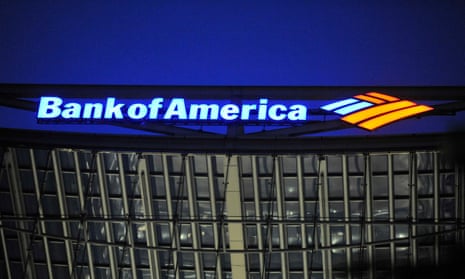Bank of America is to hire a “brand safety officer”, a full-time job dedicated to ensuring that the company’s advertising doesn’t appear alongside questionable content online.
The new role, announced at the MWC conference in Barcelona, comes weeks after Unilever threatened to pull adverts entirely from Facebook and Google.
Lou Paskalis, a senior vice president at Bank of America, said the new role was a reaction to growing fears in the company that advertising could be seen as a net negative to the company.
“I get a text from my chief financial officer every time there is news about a brand safety issue,” Paskalis said, according to ad industry news site The Drum. “I know why he is sending them to me … at some point he is going to say, ‘gee is marketing safe to invest in?’ and we don’t want that. We have to clean up our house right now.”
Paskalis cited Unilever’s threat to Google and Facebook as part of the company’s impetus for moving rapidly on the issue, saying he “applauded” what the company had done and that he was “with them in spirit”.
“It is a function of the marketer to hold to account the individual platforms to get better,” Paskalis added.
Unilever’s announcement earlier this month was prompted by a belief by the company’s chief marketing office that “parts of the internet we have ended up with [are] a million miles from where we thought it would take us”.
Citing “fake news, racism, sexism, terrorists spreading messages of hate, toxic content directed at children”, Unilever’s Keith Weed argued that it was his company’s responsibility to take a stand. “We cannot continue to prop up a digital supply chain – one that delivers over a quarter of our advertising to our consumers – which at times is little better than a swamp in terms of its transparency.”
“It is in the digital media industry’s interest to listen and act on this,” Weed added. “Before viewers stop viewing, advertisers stop advertising and publishers stop publishing.”
In the past, advertiser pressure has been successful in forcing action from Google and Facebook, who between them control more than half of all digital advertising in the UK. In 2017, YouTube lost millions as advertisers pulled funds over fears that their brands would appear alongside extremist views or hate speech.
